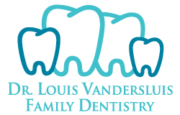
Dental FAQs
Even if you are past the cavity-prone years, regular dental checkups should be part of your preventive dental care. This is true regardless of your age. Along with brushing and flossing, dental checkups rank #1 in importance for maintaining your dental health. During a dental checkup, your teeth will be examined, cleaned and polished. Screening for oral cancer is another benefit of regular dental checkups, as early diagnosis can save your life. As well, since the early symptoms of gum disease are not always obvious, your gums will be checked. This part of the dental checkup is especially important in adulthood when teeth are more often lost to gum disease than to tooth decay. The aim of the dental checkup is to prevent the development of potential problems and to treat any existing problems before they become more serious.
The frequency of your dental checkups will depend on many factors. As a general rule, dental checkups are recommended every 6 months. However, you may require them less or more often depending on your age, your diet, your rate of plaque buildup or any existing dental or medical problems you may have.
In recent years, concern has escalated regarding the transmission of disease (AIDS, Hepatitis B, etc.) in the dental office. Although this is known to be very rare, dental instruments used for your treatment should be either disposable or sterilized. Although previous sterilization guidelines permitted the use of liquid disinfection of dental handpieces, this is not the case anymore. We continue to steam sterilize all handpieces in an autoclave as we had been doing prior to the new regulations, in order to ensure your safety.
Research has shown that the benefit of dental X-Rays outweigh their risks. Dental X-Rays are often the only way to diagnose decay between teeth or detect hidden problems, such as, gum disease, cysts, abscesses, tumors or impacted wisdom teeth. When you receive dental X-Rays, you will be covered by a protective lead apron and thyroid collar. To keep your exposure to radiation low, you will be given the minimum number of dental x-rays necessary for your dental health.
Dental X-Rays may or may not be part of your regular dental checkup. Also, they may be used to help diagnose dental emergencies. Dental x-rays will only be taken when they are absolutely necessary.
Recent media reports have challenged the safety of silver fillings, yet no scientific data exists to substantiate these claims. When you need a cavity restored, white fillings (composite-resins) will be used wherever possible. They are my personal preference due to their excellent appearance, requirement for less drilling of the tooth compared to amalgam fillings, absence of mercury, and minimal impact on the environment. In fact, for those reasons I have chosen to completely eliminate the use of silver fillings in my office. Nevertheless, if you do have silver fillings that are in good condition, I do not advise that you replace them unnecessarily.
The colour of your teeth can be affected by many factors including coffee, tea, tobacco, and some medications. While some toothpastes are advertised as having “whitening agents”, their ability to lighten your teeth has not been proven and they are not recommended. In recent years, techniques have become available to restore damaged or discoloured teeth:
- Bleaching: A plastic appliance is fabricated for you to wear over your teeth at night or while sleeping. Peroxide gel is placed into the appliance and worn for 7-10 nights. Professional supervision is important during this procedure. Although dental bleaching does not remove all stains, it will brighten your teeth.
- Composite-Resin: A dental plastic is “painted” on the front of you teeth and hardened using a special light. This can be used to change the colour of your teeth as well as their shape. With proper care, composite-resins can last 3-5 years or more. However, they can yellow or chip with time and may require some touch-ups.
- Porcelain Veneer: A thin, pre-shaped “cover” made of porcelain is bonded to your teeth. With proper care, porcelain veneers last many years, do not discolour and are stronger than composite-resins.
- Crown: An artificial tooth made of porcelain which is cemented permanently over your tooth. Also known as caps, crowns usually last 10-15 years or more and are recommended for severely damaged or decayed teeth.




